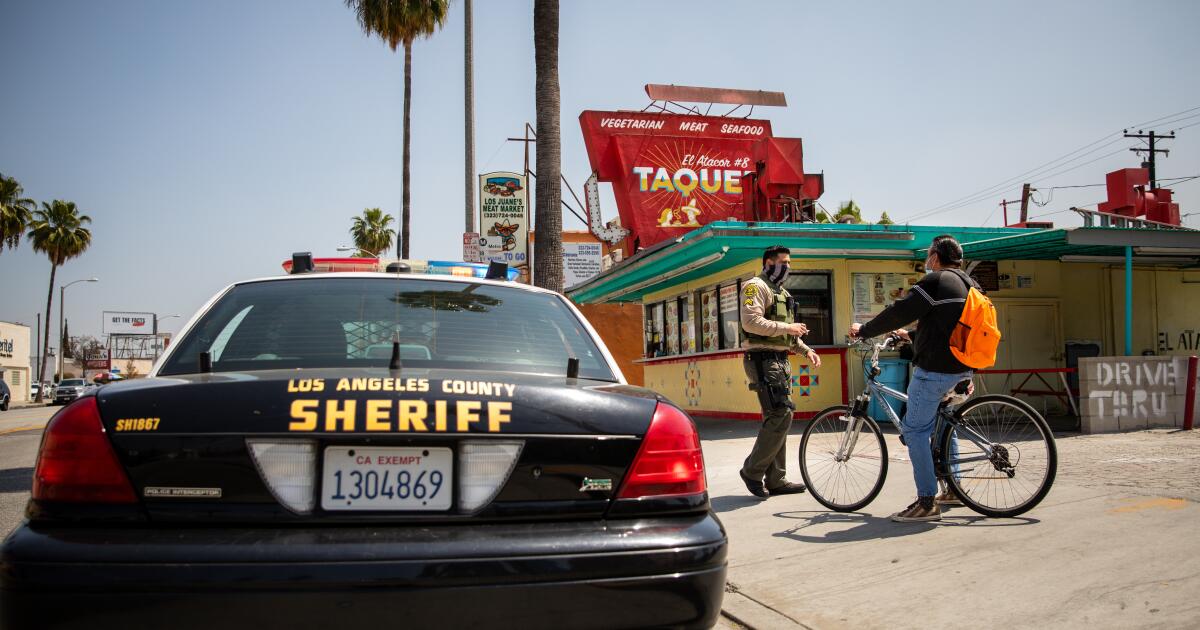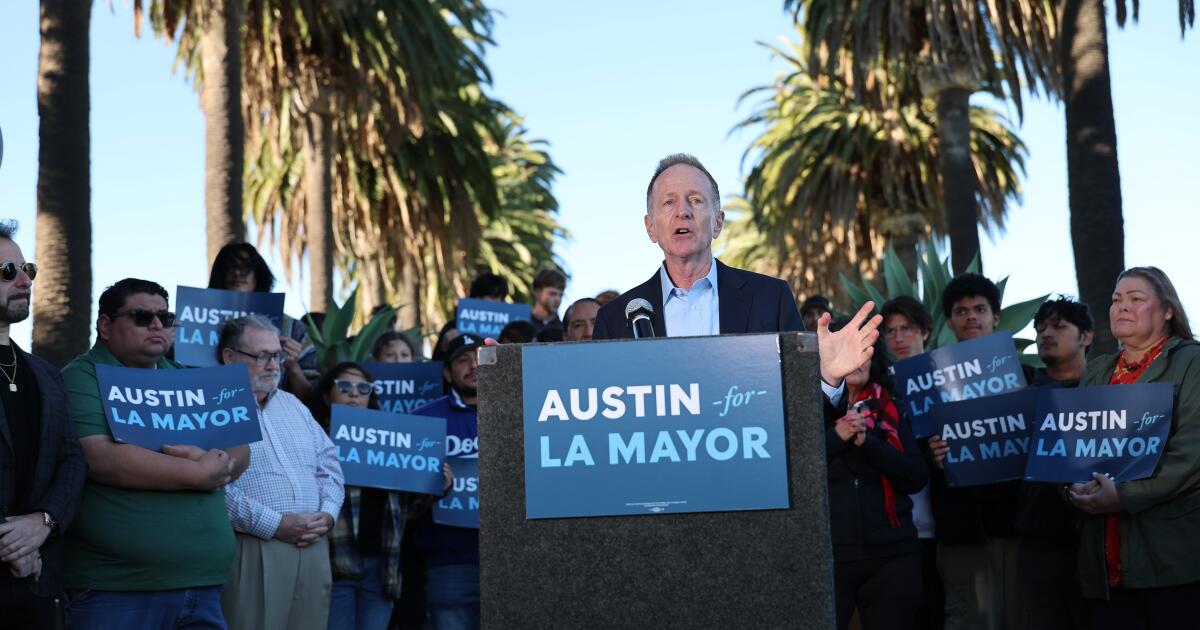Ballot proposal may change pay for L.A. County deputies, firefighters
Los Angeles County leaders are pushing forward a measure for the November ballot that would remove their ability to have final say on one of the costliest decisions they make: How much to pay firefighters and sheriff’s deputies.
The supervisors voted 4 to 0 on Tuesday to have their lawyers draft a ballot measure that would give final decision-making power in contract disputes regarding pay and working conditions for public safety workers to a three-person panel, a practice known as binding arbitration.
Supporters say the proposal, which the supervisors are pushing to get on the November ballot, would offer a new tool to smooth over disputes and provide a “reset” after recent tumultuous contract negotiations.
“It incentivizes both parties to come to a fair agreement,” said Supervisor Lindsey Horvath, who introduced the measure along with Supervisor Hilda Solis.
The supervisors are expected to vote again on the proposal in the coming months before putting it on the ballot.
Currently, if contract talks hit an impasse, the five county supervisors can, after a complex mediation process, impose a final offer. Public safety workers, who are not allowed to strike, say they have no leverage with which to fight back, giving the county final word.
Under the new proposal, the power dynamics would shift. An arbitration panel would instead make the final decision on some contract disputes for public safety employees, including firefighters, sheriff’s deputies and county lifeguards. The panel would have one arbitrator chosen by the county, one chosen by the union and one agreed to by both sides.
It’s rare for labor negotiations to get to this point. The county said it has imposed contract terms after reaching impasse over negotiations twice since 2001, once with the Union of American Physicians and Dentists in 2001 and Supervising Deputy Probation Officers in 2024.
“The goal is to never have to get to that step,” Horvath said.
Unions say the measure would give them needed leverage and remove political pressure from the thorniest contract questions. Critics say it shifts financial control away from politicians and into the hands of unaccountable arbitrators, which could lead to bloated labor costs.
“Arbitrators aren’t elected, they’re not required to weigh countywide trade-offs like homeless services, healthcare, capital improvements, all of those things,” said Supervisor Holly Mitchell, the only supervisor to abstain from the vote.
Interim County Executive Officer Joseph M. Nicchitta said he viewed it as a potential “seismic change” in how the county handles labor negotiations.
“Because the arbitrators ‘pick a winner’ as between the parties’ final offers, the decision will no longer be a compromise. One side will win,” Nicchitta wrote in a Feb. 9 letter to the board.
Substantial raises mandated by arbitrators, he wrote, “could, among other things, materially and detrimentally increase the County’s day-to-day operating costs, lead to workforce reductions and program curtailments, balloon our unfunded pension liabilities, and damage the County’s credit ratings.”
The decision of who gets final say over wage increases will become increasingly important as county leaders try to steer the government through financial tumult brought on by federal cuts, booming labor costs and billions in sex abuse payouts. Last week, the supervisors unanimously approved $200 million in homeless service cuts to close the budget gap.
Horvath said more than 20 jurisdictions in California use binding arbitration for public safety workers, including the counties of San Francisco and Sacramento.
Public safety unions are simultaneously gathering signatures to get the proposal on the ballot in case the board decides against moving forward. A coalition of public safety unions has started a campaign arguing that binding arbitration would “remove politics from pay decisions” and leave “pay decisions in the hands of neutral experts.”
“They have every intention and probably all of the resources needed to collect signatures to put something on the ballot that gets them this,” Supervisor Janice Hahn said. “This makes sense to work on something that we can have some input in.”

